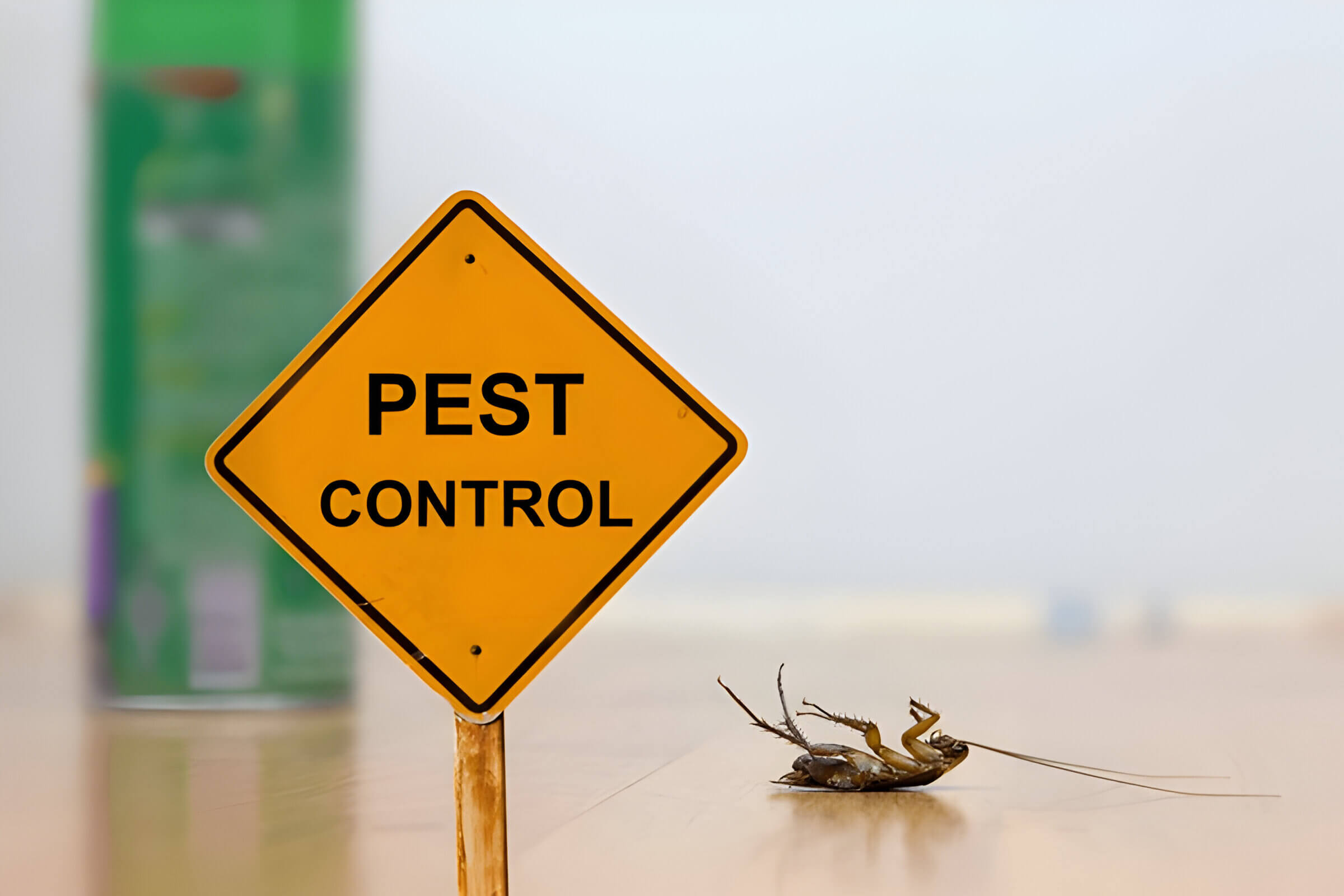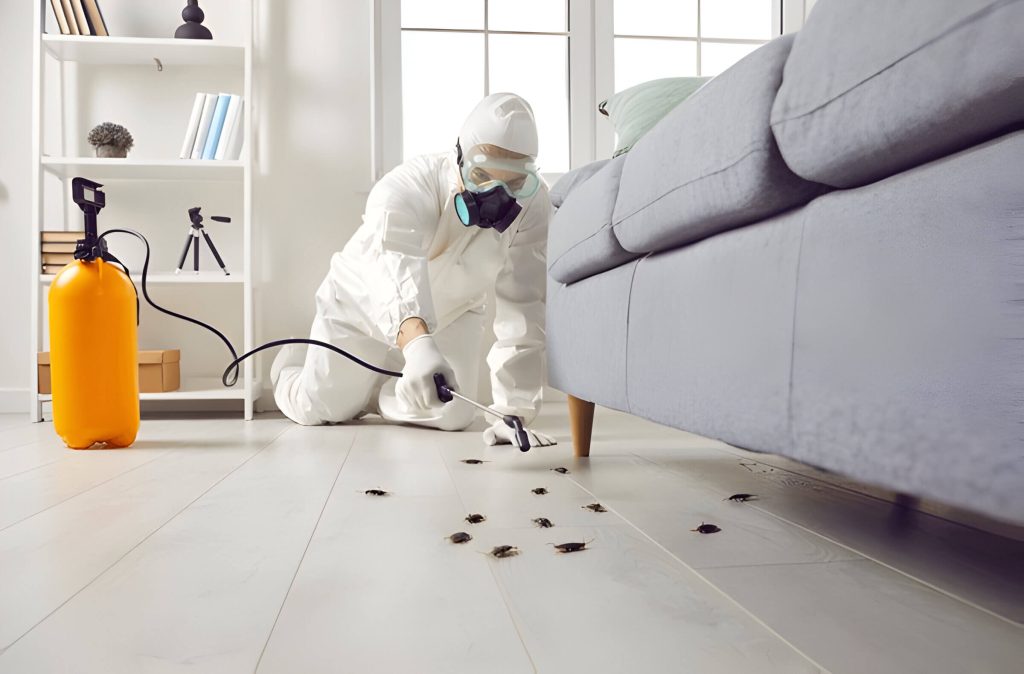
When facing a pest problem, homeowners often debate between DIY solutions and hiring a professional exterminator. This guide examines the pros and cons of each approach, covering cost, effectiveness, sustainability, and safety. Whether seeking budget-friendly solutions or long-term results, understanding these options will help you make an informed decision for your needs.
Understanding DIY Pest Control and Professional Pest Management
When it comes to home pest management, homeowners often find themselves at a crossroads between opting for DIY pest control methods or seeking the expertise of professional pest control services. Each approach has its own set of advantages and limitations, making it essential to understand both before making an informed decision.
DIY pest control involves using readily available products and techniques to manage pests on your own. This method is often cost-effective and allows for immediate action. Common DIY solutions include traps, baits, sprays, and natural remedies like essential oils and diatomaceous earth. While these methods can be effective for minor infestations or preventive measures, they may not always provide a long-term solution or address the root cause of the problem.
On the other hand, professional pest control services offer a more comprehensive approach to managing pest issues. Trained technicians use advanced tools and specialized treatments that are often more effective in eradicating pests completely. Professional services also include thorough inspections to identify potential entry points and breeding grounds, ensuring that future infestations are minimized. Additionally, many professional companies offer ongoing maintenance plans that provide regular monitoring and treatments as needed.
While DIY pest control can be a quick fix for minor issues, professional pest management offers a more thorough and sustained solution for persistent or severe infestations. Understanding the strengths of each method can help you choose the best approach for maintaining a pest-free home environment.
The Pros and Cons of DIY Pest Control
When it comes to managing pests in your home, many people consider DIY pest control solutions before calling in the professionals. Understanding the pros and cons of this approach can help you make an informed decision.
Pros of DIY Pest Control
One of the most significant benefits of DIY pest control is cost-effectiveness. Purchasing home remedies for pests or over-the-counter products can be much cheaper than hiring a professional exterminator. Additionally, diy pest solutions offer convenience and immediate action; you can address a problem as soon as you notice it without waiting for an appointment.
DIY methods also allow for greater control over the chemicals used in your home, which is particularly important for households with children or pets. Many natural remedies are available that minimize exposure to potentially harmful substances.
Cons of DIY Pest Control
Despite its benefits, there are drawbacks to consider. One major issue is effectiveness; while some diy pest solutions may work temporarily, they often lack the potency and lasting impact of professional treatments. This could lead to recurring infestations that are both frustrating and costly in the long run.
Another drawback is the potential risk involved. Misapplication or improper handling of pesticides can pose health risks to you and your family. Moreover, without proper knowledge about specific pests and their behaviors, it’s easy to underestimate an infestation’s severity or misidentify the type of pest altogether.
In summary, while DIY pest control offers several advantages like cost savings and convenience, it also comes with significant risks related to effectiveness and safety. Weighing these pros and cons carefully will help you decide whether this approach suits your needs or if it’s time to consult a professional for more reliable results.
The Advantages and Disadvantages of Hiring a Professional Exterminator

Hiring a professional exterminator offers several advantages, making it a popular choice for homeowners facing pest issues. One of the primary benefits of hiring a pest control service is the expertise and experience that professionals bring to the table. They are trained to identify various pests accurately and understand their behaviors, which allows them to implement effective treatment strategies. Additionally, professional exterminators have access to specialized tools and products that are not available to the general public, ensuring more efficient and long-lasting results.
Another significant pro of professional pest management is safety. Pest control treatments often involve chemicals that can be hazardous if not handled correctly. Professional exterminators are knowledgeable about these substances and take necessary precautions to protect you, your family, and your pets during the process. Furthermore, hiring an expert can save you time and effort as they handle all aspects of pest eradication from inspection to follow-up visits.
However, there are also some disadvantages associated with hiring a professional exterminator. One notable con is the cost. Professional services can be expensive compared to DIY methods, which may deter some homeowners from seeking expert help. Additionally, scheduling appointments with an exterminator might require flexibility on your part, potentially causing inconvenience.
While hiring a professional exterminator comes with clear benefits such as expertise, safety, and convenience in dealing with pests effectively, it also has its drawbacks like higher costs and potential scheduling challenges. Weighing these pros and cons can help you make an informed decision on whether professional pest control is the right choice for your needs.
Cost Comparison (DIY vs Professional Pest Control Services)
When it comes to managing pest infestations, homeowners often face the dilemma of choosing between DIY methods and hiring professional pest control services. Understanding the cost implications of each option can help make an informed decision.
The cost of DIY pest control primarily involves purchasing products such as sprays, traps, and baits. On average, these materials can range from $20 to $50 per treatment, depending on the type and severity of the infestation. While this may seem budget-friendly initially, multiple treatments are often required for effective results, which can add up over time.
On the other hand, professional extermination services typically charge between $100 to $300 per visit. This price includes a thorough inspection, tailored treatment plans, and follow-up visits to ensure the problem is resolved. Although the upfront cost is higher compared to DIY methods, professional services offer expertise and long-term solutions that might prove more economical in preventing recurring issues.
While DIY pest control might be appealing for those on a tight budget looking for immediate relief, investing in professional extermination services could provide more comprehensive and lasting results. Weighing these costs against your specific needs will help determine the most effective approach for maintaining a pest-free home.
Which Method Provides Better Results?
When it comes to pest management, homeowners often face the dilemma of choosing between DIY pesticide use and professional treatments. Understanding the effectiveness of each method is crucial for making an informed decision.
DIY pesticide use is appealing due to its cost-effectiveness and convenience. Homeowners can easily purchase over-the-counter products and apply them as needed. However, while DIY solutions may offer immediate relief, they often lack the potency and precision required for long-term results in pest management. The effectiveness of DIY pesticide use can be inconsistent, as it heavily depends on proper application techniques and accurate identification of pests.
On the other hand, professional treatments are administered by trained experts who possess extensive knowledge about various pests and their behaviors. These professionals utilize advanced tools and chemicals that are not readily available to the general public. The efficiency of professional treatments typically surpasses that of DIY methods due to their targeted approach and thorough application processes. Moreover, professionals can implement integrated pest management strategies that focus on long-term prevention rather than just temporary fixes.
While DIY pesticide use might offer a quick solution at a lower cost, professional treatments tend to provide more effective and lasting results in pest management. For those seeking comprehensive protection against pests with minimal recurrence, investing in professional services may prove to be the more efficient choice.
Sustainability and Safety Considerations in Pest Control Methods
When it comes to managing pests, the balance between effectiveness and safety is crucial. Traditional pesticides, while effective, often come with significant environmental and health concerns. This has led to a growing interest in sustainable DIY techniques for pests and eco-friendly professional services.
Sustainable DIY Techniques for Pests
For those looking to manage pests at home, there are numerous sustainable methods available. Simple solutions like vinegar traps for fruit flies or diatomaceous earth for ants can be both effective and environmentally friendly. These methods minimize the use of harmful chemicals, making them safer for both humans and pets.
Eco-Friendly Professional Services
Many pest control companies now offer eco-friendly services that prioritize sustainability. These services often use natural predators or organic treatments to manage pest populations without harming the environment. By opting for these eco-friendly professional services, homeowners can effectively address pest issues while minimizing their ecological footprint.
Safe Pest Control Methods at Home
Safety is a major concern when dealing with any form of pest control. Non-toxic alternatives such as essential oil sprays or boric acid can be used safely around children and pets. Additionally, physical barriers like mesh screens or caulking gaps are effective ways to prevent pests from entering your home without resorting to chemical treatments.
Safety Concerns with Pesticides
While pesticides can be highly effective against various pests, they come with their own set of risks. Exposure to certain chemicals found in traditional pesticides has been linked to respiratory issues, skin irritations, and even long-term health problems like cancer. Therefore, it’s vital to carefully read labels and follow safety guidelines when using these products.
Incorporating sustainable practices into your pest control strategy not only protects your home but also safeguards your health and the environment. Whether you choose DIY techniques or professional services, prioritizing eco-friendly options ensures a safer future for everyone involved.
User Accessibility and Convenience in DIY vs Professional Approaches
When considering user accessibility and convenience, the choice between DIY methods and professional approaches can significantly impact your experience and results. Convenience in using DIY methods often lies in their immediate availability and cost-effectiveness. Home treatments typically require minimal investment in tools or products, making them an attractive option for those looking to save money. Additionally, the ease-of-use in home treatments has improved with the proliferation of online tutorials and readily available kits that guide users through various processes.
However, accessibility to professional services offers its own set of advantages. Professional approaches provide access to expert help, ensuring that tasks are completed with a high degree of precision and expertise. This is particularly beneficial for complex or specialized tasks where the margin for error is small. The availability of expert help can also save time and reduce stress, as professionals bring both experience and specialized equipment to the table.
The decision between DIY methods and professional services depends on your specific needs, budget constraints, and desired outcomes. While DIY methods offer convenience and cost savings, professional services provide a level of expertise and reliability that can be crucial for certain projects.



